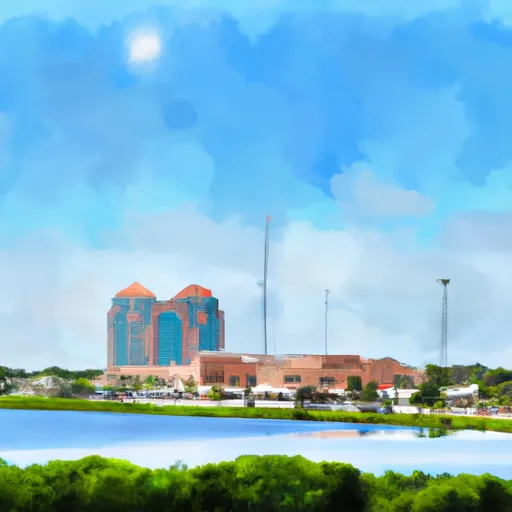-
 Snoflo Premium
Snoflo Premium
Get unlimited access to all our content
With no Ad interruptions! - Start Your Free Trial Login with existing account
Venus
Eden Index
Climate
6.7
•
Recreation
3.4
•
Community
•
Safeguard
3.9/10

Venus, Florida is a small unincorporated community located in Highlands County. Situated in the heart of central Florida, Venus experiences a humid subtropical climate characterized by hot, humid summers and mild, dry winters. Summers are typically long and often accompanied by afternoon thunderstorms, while winters are mild with occasional cold spells.
In terms of hydrology constituents, Venus is surrounded by several lakes and rivers, including Lake June-in-Winter, Lake Placid, and the Kissimmee River. These water bodies provide opportunities for various recreational activities such as boating, fishing, and water sports. The area is also known for its diverse wildlife, attracting nature enthusiasts and birdwatchers.
Outdoor recreation opportunities in Venus extend beyond water-based activities. The region boasts numerous natural areas, parks, and nature reserves that offer opportunities for hiking, camping, and wildlife observation. Nearby Lake June-in-Winter State Park and Archbold Biological Station are popular destinations for outdoor enthusiasts, offering a chance to explore diverse ecosystems and enjoy the natural beauty of the area.
Overall, Venus, Florida offers a pleasant climate, abundant water resources, and a variety of outdoor recreation opportunities, making it an appealing destination for nature lovers and those seeking outdoor adventures.
What is the Eden Index?
The Snoflo Eden Index serves as a comprehensive rating system for regions, evaluating their desirability through a holistic assessment of climate health, outdoor recreation opportunities, and natural disaster risk, acknowledging the profound impact of these factors on livability and well-being.
Climate Health Indicator (CHI): 6.7
Venus receives approximately
1315mm of rain per year,
with humidity levels near 82%
and air temperatures averaging around
23°C.
Venus has a plant hardyness factor of
9, meaning
plants and agriculture in this region tend to thrive here all year round.
By considering the ideal temperature range, reliable water supplies, clean air, and stable seasonal rain or snowpacks, the Climate Health Indicator (CHI) underscores the significance of a healthy climate as the foundation for quality living.
A healthy climate is paramount for ensuring a high quality of life and livability in a region, fostering both physical well-being and environmental harmony. This can be characterized by ideal temperatures, reliable access to water supplies, clean air, and consistent seasonal rain or snowpacks.
Weather Forecast
Streamflow Conditions
Kissimmee
Area Rivers
Kissimmee
Snowpack Depths
Kissimmee
Reservoir Storage Capacity
Kissimmee
Groundwater Levels
Recreational Opportunity Index (ROI): 3.4
The Recreational Opportunity Index (ROI) recognizes the value of outdoor recreational options, such as parks, hiking trails, camping sites, and fishing spots, while acknowledging that climate plays a pivotal role in ensuring the comfort and consistency of these experiences.
Access to outdoor recreational opportunities, encompassing activities such as parks, hiking, camping, and fishing, is crucial for overall well-being, and the climate plays a pivotal role in enabling and enhancing these experiences, ensuring that individuals can engage in nature-based activities comfortably and consistently.
Camping Areas
| Campground | Campsites | Reservations | Toilets | Showers | Elevation |
|---|---|---|---|---|---|
| Lake Arbuckle Co Park | 30 | 62 ft | |||
| Arbuckle - Lake Wales Ridge SF | None | 87 ft | |||
| Avon Park AF Range Military | 40 | 71 ft | |||
| Fisheating Creek Campground | 120 | 55 ft | |||
| Bear Island - Big Cypress WMA | None | 44 ft | |||
| Lake Kissimmee State Park | None | 70 ft | |||
| Ortona South | None | 16 ft | |||
| Burns Lake - Big Cypress National Preserve | 14 | 9 ft | |||
| Moss/Split Oak | None | 77 ft | |||
| Highlands Hammock State Park | None | 136 ft |
Catastrophe Safeguard Index (CSI):
The Catastrophe Safeguard Index (CSI) recognizes that natural disaster risk, encompassing floods, fires, hurricanes, and tornadoes, can drastically affect safety and the overall appeal of an area.
The level of natural disaster risk in a region significantly affects safety and the overall livability, with climate change amplifying these risks by potentially increasing the frequency and intensity of events like floods, fires, hurricanes, and tornadoes, thereby posing substantial challenges to community resilience and well-being.
Community Resilience Indicator (CRI):
The Community Resilience Indicator (CRI) recognizes that education, healthcare, and socioeconomics are crucial to the well-being of a region. The CRI acknowledges the profound impact of these elements on residents' overall quality of life. By evaluating educational resources, healthcare accessibility, and economic inclusivity, the index captures the essential aspects that contribute to a thriving community, fostering resident satisfaction, equity, and social cohesion.

